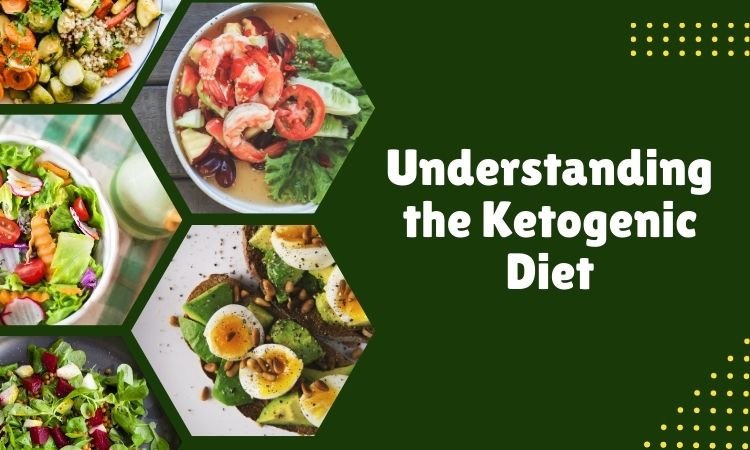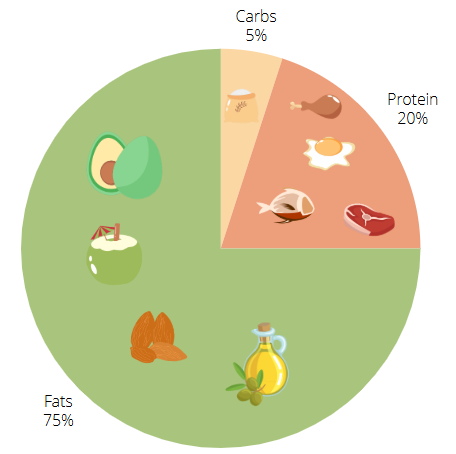
What Is the Ketogenic Diet?
The ketogenic diet, or "keto," is a high-fat, low-carb eating plan designed to put your body into a state called ketosis. In ketosis, your body burns fat for energy instead of carbohydrates, leading to rapid fat loss, increased energy, and other health benefits.
Here’s the macronutrient breakdown:

The drastic reduction in carbs forces your body to use stored fat as its primary energy source, producing ketones in the liver.
The Science Behind Keto
Under normal circumstances, your body relies on glucose from carbohydrates for energy. When carbs are unavailable (like on keto), your body starts breaking down fat into molecules called ketones, which become your new fuel source.
Ketones are highly efficient and provide steady energy, eliminating blood sugar spikes and crashes.
Benefits of Keto
Weight Loss: Keto enhances fat burning, especially around the abdomen, while preserving muscle mass.
Improved Mental Clarity: Many people report feeling more focused and productive on keto.
Stable Energy Levels: You experience sustained energy throughout the day without carb crashes.
Reduced Cravings: High-fat meals are incredibly satiating, which can curb overeating.
Better Health Markers: Keto can improve cholesterol levels, reduce inflammation, and regulate blood sugar.

Is Keto Right for Everyone?
While keto has many benefits, it’s not suitable for everyone. Pregnant women, people with certain medical conditions (like pancreatitis), or those who rely heavily on high-carb diets for specific activities should consult a doctor before starting.
How to Get Started
Learn Your Macros: Use a keto calculator to determine how much fat, protein, and carbs you need daily.
Focus on Whole Foods: Stick to unprocessed, nutrient-rich options like avocados, nuts, eggs, fatty fish, and leafy greens.
Avoid Hidden Carbs: Be mindful of sugar in processed foods, condiments, and sauces.
Plan for Keto Flu: In the first week, you might feel fatigued or irritable as your body adjusts. Stay hydrated and increase your electrolytes to ease symptoms.
Track Progress: Use apps or journals to monitor your food intake and progress toward ketosis.
Common Mistakes to Avoid
Eating too much protein: Excess protein can kick you out of ketosis.
Not getting enough electrolytes: Low carb intake can cause a drop in sodium, potassium, and magnesium.
Being impatient: It takes time for your body to adapt to burning fat.
Keto isn’t just a diet—it’s a metabolic shift that can transform your health and energy. Stick with it, be mindful of your macros, and enjoy the results.
Right now, I'm not considered a keto person because I love bread too much. LOL, jokes aside, I try to avoid as many carbs as possible, but not enough to be full keto — even some veggies have carbs! So I'm more of a low-carb person. Yeah, keto and low-carb are slightly different!

And that's where IF comes in so I can be in a state of ketosis as long as possible :)
See you next time!
Posted Using INLEO
Hace un año hice una dieta de este tipo y mejore notablemente de una retención de líquidos en los pies, luego de un mes comencé poco a poco a comer normal sin exagerar, lo que si es que en mi casa no se volvió a comprar azúcar , y controle esa adicción
apologies for replying in English even though I understood because it's similar to Portuguese..I'm not familiar in writing in Spanish lol
it helps a lot just by simply reducing the carbs, or choose the better ones! I'm happy that it worked for the better for you :)
!PIZZA
Hive.Pizza upvoted this post.
$PIZZA slices delivered:
@elianaicgomes(1/20) tipped @encuentro
Join us in Discord!